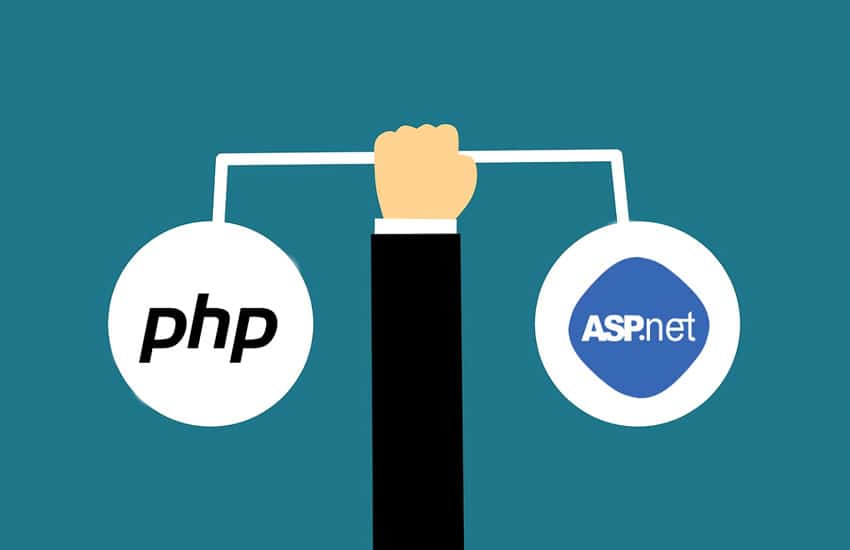PHP vs ASP: A Clear Comparison of Two Popular Web Technologies
What is PHP?
PHP is a programming language that stands for Hypertext Preprocessor. It started as just a parsing language created by Lerdorf, but a few different people later modified it. This programming language works on Linux and UNIX servers. A scripting language is a set of instructions for the web browser or the server. Server-side scripting generally uses server resources instead of a user’s computer. It completes all processes on a server and sends the plain page to the client, reducing the client-side computation overhead. In other words, the PHP code is executed on the web server before the data is passed to the user’s browser. It supports databases like MySQL, Informix, Oracle, Sybase, Solid, PostgreSQL, and Generic ODBC.
Why PHP?
- Runs on various platforms (Windows, Linux, Unix, Mac OS X)
- Compatible with almost all servers used today (Apache, IIS)
- Supports a wide range of databases
- It is free to download. Download it from the official PHP resource: www.php.net
- PHP is easy to learn and runs efficiently on the server side.
What is ASP?
ASP stands for Active Server Pages. It is a server-side scripting language that allows the user to create dynamic websites using server-side scripts, such as VBScript and JavaScript. It is an open, compile-free application environment where you can combine HTML, scripts, and reusable ActiveX server components to create dynamic and powerful web-based solutions. Active Server Pages permit server-side scripting for Internet Information Services (IIS) with native support for both VBScript and JavaScript.
Why ASP?
Dynamic web page
ASP supports scripting languages, which can be run on the web server. The user’s web page can be dynamically created. For example, the developer can create a greeting for each user when they log into their preferences and country.
Database Access
ASP enables users to easily build rich database functionality, such as form processing, into their websites.
Free availability
Users can download the web server for free from Microsoft’s website. Writing ASP code does not require special tools. A user can simply use any text editor, like Notepad.
What is the difference between PHP and ASP?
- Speed and performance
- Security
- Cost
- Support and resources
- Tools and editors
- Platform Dependency
Speed and performance
The speed of any programming language does not noticeably affect websites today. There are other factors to consider when measuring the web application’s speed. However, if the website must perform many different tasks, you should thoroughly check which programming language would be best for the required tasks.
It selects the programming language by analyzing its performance under different scenarios. These can include accessing and querying databases, outputting the results, accessing file systems, finding an image, and sending it to a web server, etc.
Security
Both platforms provide security features, but in different ways. ASP.NET comes with a built-in security feature called SQL injection, while HP provides tools to structure applications securely.
In other words, ASP.NET makes it easier and more reliable for developers to apply security features, whereas PHP only provides you with the tools.
Many PHP developers tend to overlook security features, resulting in app vulnerabilities. On the other hand, ASP.NET’s security features are the best because of their built-in tools, which save effort.
Cost
LAMP (Linux, Apache, MySQL, PHP) is popular among hosting companies. Thus, hosting costs are lower monthly than Windows hosting.
ASP.NET is free if you purchase the Windows OS. Still, there will be licensing costs for MS Windows Server, MS SQL Server, and future upgrades.
Thus, PHP is more cost-efficient – it is open-source and free of charge. ASP.NET comes with free web hosting only.
Support and resources
Since LAMP is open-source, many dedicated developers support, update, and improve the platform globally. If you post a question on the PHP forum or seek help with a functionality challenge, you will receive plenty of helpful information from developers worldwide. The number of developers and support resources for PHP and LAMP platforms is continually growing.
ASP.NET relies on a limited number of developers from the Microsoft platform. Therefore, fewer developers are available if you seek help with some ASP.NET challenge.
Tools and editors
PHP and MySQL are editor-independent. PHP developers can access many functional editors. However, most ASP.NET developers rely on Microsoft’s Visual Studio Editor to develop .NET applications. ASP.NET offers many tools and built-in features, allowing developers to create websites without issues.
Platform Dependency
PHP is platform-independent and can run on any platform, such as Linux, UNIX, macOS, and Windows. ASP.NET runs on the Windows platform only. This is one reason why the PHP audience is so large, and its community is so powerful.
Conclusion
PHP has proved to be a powerful framework with glorious open-source free libraries. Still, ASP.NET also has many advantages, especially for enterprise companies that prefer Microsoft technology.
PHP has a huge open-source community; you can find many solutions online. Microsoft has a community of .NET developers that you can reach for assistance. However, there might not be as many open-source solutions in .NET as in PHP.
The choice of ASP.NET vs. PHP becomes simpler when businesses and developers know all technical requirements precisely. Then, they can estimate the benefits of each technology correctly.
That’s why it is crucial to evaluate the project needs. To pick the right technology, always consult experienced web development professionals.
FAQ
What is the main difference between PHP and ASP?
PHP is open-source and widely supported, while ASP is closely integrated with Microsoft technologies.
Which is better for beginners?
PHP is generally easier for beginners due to simpler syntax and broader community resources.
Are PHP and ASP still used today?
Yes, both are still used, but PHP remains more common in shared hosting and open-source projects.
